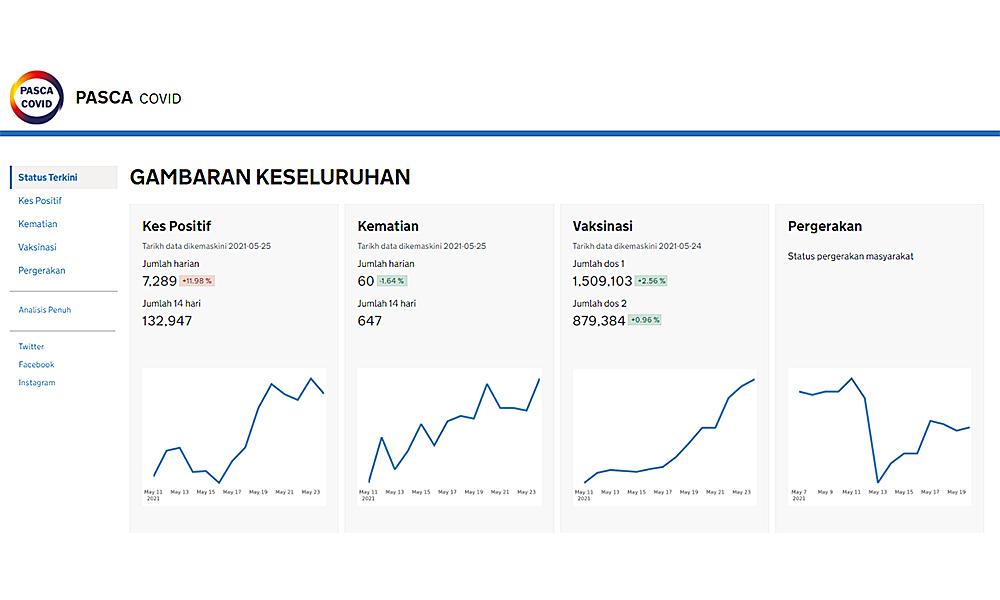Opposition leader Anwar Ibrahim has criticised the government for not sharing granular data on the Covid-19 pandemic, which hampered the dissemination of information that could help people make informed decisions.
At an online press conference today, Anwar said the public should know detailed information on hospitalisations, ICU use, deaths and vaccine registration down to the district level.
He said a new initiative known as "Pasca Covid" (Post Covid) online dashboard, developed by the Harapan Foundation, was hoping to bridge the information gap, but the authorities have not responded to their request for granular data.
Wan Muhammad Hasni Wan Sulaiman, the head of the Pasca Covid initiative, told reporters that they already have detailed data on every location in Malaysia based on information collected from sources across the globe, including geo-codings.
"We got this from open data, big data. We have requested (from the government) for MySejahtera data if that is possible. Why do we need data from MySejahtera? So that it can further complement what we already have.
"However, this has yet to happen. And we hope that it can be done as soon as possible," he said.
Hasni stressed that the dashboard needs data as granular and as timely as possible so that they can do projection of the number of cases, among others.

Mobility data
Both Anwar and Hasni claimed that the government has failed to make an early prediction on the spikes of positive cases this week.
"We should have been able to predict that this number is going to come today.
"If we have the data then, by whatever modelling, we can know that numbers today. Even worse, as a data scientist, I am not even sure if the 6,000 and 7,000 cases are accurate numbers," said Hasni.
For the record, the Health Ministry has issued its projection of the number of cases from time to time. This includes its daily observed and forecast cases based on the Susceptible-Exposed-Infectious-Removed (SEIR) model.
When pointed to this fact by a journalist during the presser, Anwar claimed that the projection was not based on clear data on mobility.
"The projection is right, but it is based on what he knows generally. Not based on clear data on mobility... how many hundreds of thousands moving around and mixing with each other.
"If we know these numbers according to districts, states, it will be different.
"And then, the country's leaders must also do their projection, not only by the Health director-general alone. It must be the country's decision to project what would happen in the next two, three weeks," he said.
Meanwhile, Hasni said the R-naught data announced from time to time by Health director-general Dr Noor Hisham Abdullah was good, but it is akin to looking at a rear-view mirror.
"It is like we are weighing something that has already happened. We want to know what will happen in the future.
"And I have told him that we can use mobility data to see what can happen two weeks ahead," he said.
However, he stressed that it is not their intention to argue whose data is more accurate, but rather to complement each other.
"What we want to achieve is mutual understanding, so that the public can look at the data and decide what they should do.
"For example, when we see that there is an increase in mobility, we will know that the number of cases would go up. So, what do we tell the public? We tell them to reduce their movement.
"But this is not being done. This is what I meant by data gap because the information did not reach the public," he said. - Mkini




No comments:
Post a Comment
Note: Only a member of this blog may post a comment.